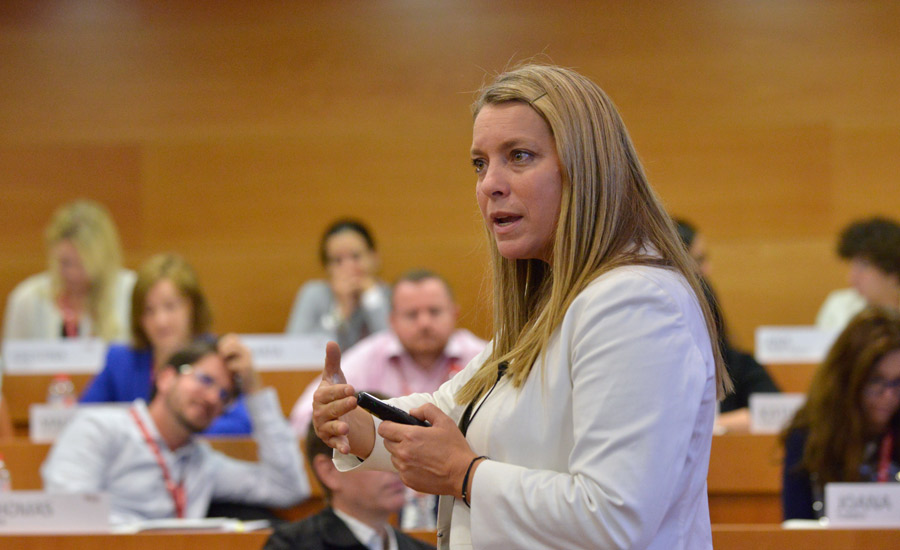
“If we want to hold on to our leading position and to our wealth, we need to be able to keep innovating,” says German Chancellor Angela Merkel at the German Research Summit (Forschungsgipfel) 2016 in Berlin recently.
Merkel was joined by thought leaders and experts from business, science, and politics, including IESE Professor Sandra Sieber, at the Summit. This year’s topic was "Digitalization and its impact on business and society" — big data, industry 4.0 and artificial intelligence are changing our world.
Sieber argues that staying ahead of the pack requires long-term commitment.
“The days of business as usual are over,” warns Sieber. “If you’re really committed to transforming existing business models into digital strategies, then it’s time to take an outside-in approach.”
Sieber argues that Germany needs more business leaders prepared to “hack” their business models. And to do that big businesses need a shift in mindset and power.
The Spirit of a Startup
German automobile giant Daimler CEO Dieter Zetsche, says that taking risks and being willing to try new approaches are vital for future success. He pinpoints the spirit of a startup as one of the key elements that traditional big businesses lack.
“For us, digitalization is the greatest opportunity since the invention of the automobile,” says Zetsche.
“At Daimler we’ve launched several flagship startup style projects to develop models for the future of the company.” And employees at Daimler are empowered to question anything.
Sieber advocates that as well as taking risks and trying new approaches, a new – and explicit – culture of accepting failure must be adopted. “To drive innovation forward, employees must be allowed to commit and learn from errors,” she says.
Deutsche Telekom’s CEO Timotheus Höttges agrees that organizations need to shift from “thinking to making” — and accept mistakes as part of the process.
Customer Focused
Höttges sees data sharing and cooperation models as key to a new way of value creation. “Partner models will be yield models. And customer benefits will drive innovation more than technology,” he says. For this, design thinking will be vital for businesses. “That way we can best react to real customer demands.”
Big data and industry 4.0 will change manufacturing processes as well as tighten the relationships between manufacturers and customers, claims Höttges. “This will open up a wealth of new business opportunities for companies that successfully face the challenge.”
SMEs in particular will be affected most by this transformation, as the current issues with digitalization tend to be knowledge and infrastructure based.
The German Digital Agenda
To this end, the German government launched a variety of initiatives under the “Digital Agenda.” This aims to support businesses and create the infrastructure and legislation necessary to foster digitalization and promote digital literacy amongst Germans.
The educational sector will feel the effects of digital, as new emerging concepts filter through all walks and areas of life – from schools and universities to the workplace.
In this context, the role and self-perception of teachers may also change, predicts Sieber. “How, where and what we learn is changing,” says Sieber. “Professors will have to anticipate a lot more and like in the new approach in businesses, making mistakes on their way to new insights will be part of the process.” But all sectors will be affected by the possibilities of the digital age and what is at stake.
Merkel sees that “we are not lacking opportunities but we have to be realistic, the battle has not yet been won.”